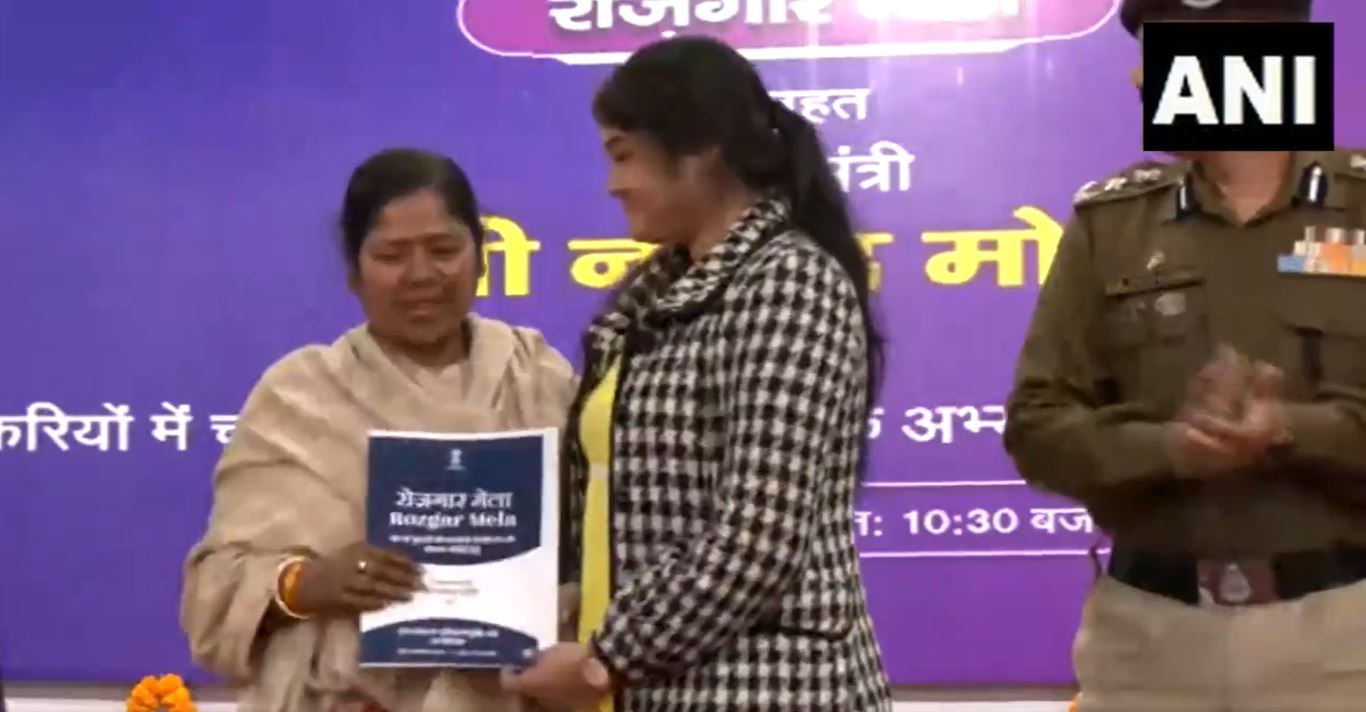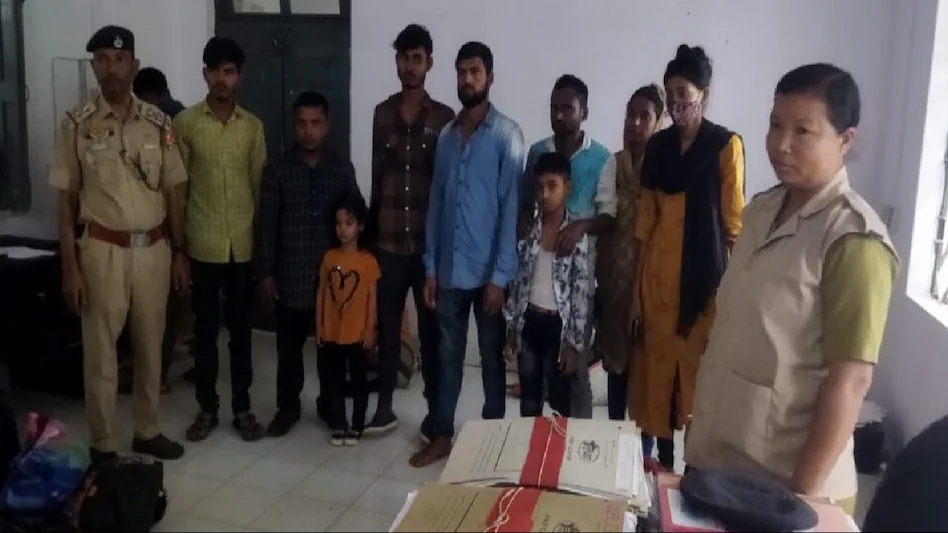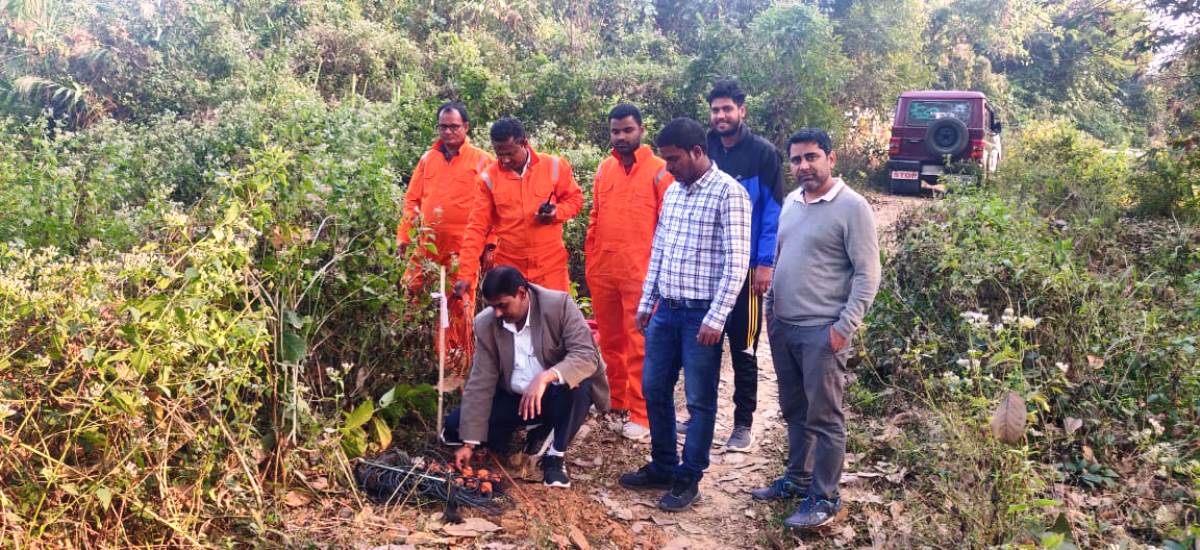Tripura is likely to earn a lot of foreign exchange in the near future as one of the leading carbon credit seller states in the country
 Jayanta Debnath
Jayanta Debnath

Climate change is a real phenomenon due to the increase in carbon footprint in the last few centuries due to the increase in greenhouse gas (GHG) emissions. As a result, global warming, weather disturbances, and sea levels are rising worldwide. Global leaders are committed to reducing global warming and mitigating climate change. To this end, the Kyoto Protocol was adopted in December 1997, which promised to reduce greenhouse gas emissions (GHG). The development of the carbon credit market has resulted in the introduction of market-based mechanisms by member states to meet their targets for reducing greenhouse gas emissions.
A carbon credit is a tradeable permit or certificate that gives the credit holder or its buyer the freedom or power to emit one ton of carbon dioxide or any other greenhouse gas equivalent or to pollute the atmosphere. Under the Paris Agreement, signed in 2015, the application of carbon credits was further empowered and recognized, and elaborate provisions were made for its benefit.
Tripura is one of the few states in the country to have recently started working on carbon credits. Assam, the largest state in the Northeast, has so far failed to generate foreign exchange by reducing its greenhouse gas (CO2) emissions or using the commercial concept of carbon credits or carbon trading. The state government has declared Tripura’s science and technology department as the nodal department for all activities related to carbon credits. If Tripura’s Department of Science and Technology can do just that, Tripura is likely to emerge as one of the country’s leading carbon credit sellers in the near future. As a result, plant owners in the public and private sectors will be able to earn a lot of money as carbon credit sellers. However, in this regard, the state government has to formulate several policy guidelines. Although late, the State Department of Science and Technology has recently started policy framing on Carbon Credit Monetization in collaboration with Indore Smart City Development Limited.
Indore Smart City Development Limited is the first government owned company in the country to have already earned a lot of foreign exchange by trading carbon. Therefore, the State Department of Science and Technology has recently started working in this regard in association with Indore Smart City Development Limited. An MOU has already been signed on Aggregator Business Model for the Carbon Credit Monetization with Indore Smart City Development Limited (ISCDL).
According to the ISCDL experts, the concept of carbon trading was adopted in the 1997 Kyoto Protocol in Japan to reduce emissions of air pollutants (CO2). Through this, an international agreement was signed to protect the Earth’s atmosphere from global warming. The concept of carbon trading has been evolving since 2002 in the wake of this agreement. It can also be called an international market-centric measure aimed at reducing the amount of CO2 in the atmosphere.
The Kyoto Protocol sets out a specific level of how much air pollution each country in the world can emit in accordance with the United Nations Framework Convention on Climate Change (UNFCCC). If a country wants to emit more air pollutants (CO2) than that specified level, then other countries that emit less than that specified amount of air pollutant (CO2) into the atmosphere should purchase permits to emit additional air pollutants (CO2) in exchange for money. In this way, it is possible to reduce the amount of air pollution worldwide. And this commercial strategy to reduce air pollution is called carbon credit for short. This means that the countries that are polluting more air will be able to increase the air pollution a little bit with the permission of carbon credits from the countries which are polluting less air. In a word, a carbon credit is a type of commercial certificate or authorization that allows a country to emit 1 ton of carbon or carbon dioxide (CO2). That is, 1 carbon credit is equal to 1 ton of carbon dioxide.
In 2005, the European Union was the first to introduce such a carbon trading system in accordance with the Kyoto Protocol. In 2011, Canada was the first country in the world to reach the level set by the Kyoto Protocol set by the United Nations Framework Convention on Climate Change (UNFCCC). On the other hand, the United States and Europe, the two major polluters in the global carbon trading market, have not yet reached that goal. In Japan’s Kyoto Protocol, 169 countries have signed international agreements on carbon credits. Countries that have signed the Japan Treaty have imposed gas (CO2) emissions limits on their industries or companies. In this case, the companies will reduce the amount of gas (CO2) emissions in two ways.
1. New gas emissions require that new technologies be used to reduce greenhouse gas (CO2) emissions or improve older technologies so that less carbon dioxide is emitted into the air.
2. Developed countries will introduce new environmentally friendly technologies to developing countries. This could help developing countries get carbon credits. The developed country will then be able to increase its greenhouse gas (CO2) emissions accordingly by applying this carbon credit, i.e. 1 ton of carbon emissions.
India and China are known as developing countries all over the world. As such, India and China are known as the world’s leading carbon credit sellers. The United States and European countries, known for their emissions of greenhouse gases (CO2), are the world’s largest carbon credit buyers. China is currently the world’s largest carbon credit seller. China occupies about 70% of the world market. India lags far behind in the global carbon credit market. Very few states in the country have started working on greenhouse gas, carbon credits. In this case, Tripura is one of the few states in the country that has already started working on carbon credits.
An Aggregator Business Model for Carbon Credits for the first Carbon Credit Monetization for Indore Smart City experts through video conferencing on January 5 in the presence of Tripura Chief Secretary Kumar Alok and State Science and Technology Chief Secretary BK Sahu, discussed the following:
- Opportunities and benefits from carbon credits
- Opportunity to earn foreign currency for the state and nation.
- A guaranteed income opportunity from plants without any additional capital investment.
- Opportunity to improve reputation at national and international level.
- Involve yourself in innovative initiatives such as contributing to a clean world.
- An indicative list of projects or opportunities eligible for the sale of carbon credits
- Renewable energy projects – increase the use of wind, hydro and solar power on roofs, LED lighting.
- More solid waste management, bio-gas, sewage treatment plants.
- Transportation – Increasing the number of electric cars in the road or expansion of bicycle based transport system, metro rail.
- Encourage Afforestation and Reforestation Large scale Plantation activities, Commercial plantations, Reduction in deforestation.
- Encourage plastic disposal and recycling projects and processes.
- Carbon dioxide emissions reduction projects in the industrial sector
- Livestock Management – Encourage biogas and go-cast production projects and processes.
- Encourage electric vehicles and any other projects and processes that help reduce net carbon emissions.
- Any Other green project that helps to reduce the net Carbon Emissions.
Indore Smart City Development Limited (ISCDL) is the first smart city in South Asia to successfully sell Carbon Credits and generate a significant amount of revenue. ISCDL had registered three projects under three Verified Carbon Standard (VCS) programme. They had identified various other unregistered projects set up in Indore City such as Sewage Treatment Plant, Decentralized composting, Forestry, Plastic Recycling, LED Lighting, etc. and they have been registered in respect of eligible Carbon Credit Mechanisms. ISCDL has also suggested state Science and Technology department, which is also the nodal agency in Tripura to do the needful on carbon trading to identify the projects such as Sewage Treatment Plant, Decentralized composting, Forestry, Plastic Recycling, LED Lighting, etc. in respective of eligible Carbon Credit Mechanisms which can be monetized.
If the Tripura Department of Science and Technology can do this properly, Tripura is likely to earn a lot of foreign exchange in the near future as one of the leading carbon credit seller states in the country…

(Jayanta Debnath is the editor and MD of tripurainfo.com)
Advertisements | 5E For Success

5 Advantages of KRC 5E MDP program, powered by KRC Foundation.
1. Employability training
2. Internship
3. Earn while you learn ( Work Experience Certificate, subject to selection and performance)
4. 100% Cashback on Fees through Global Garner
5. KRC Membership & Placement assistance.
Send your resume to get a free profiling session and selection.
Email resume: 5eforsuccess@gmail.com
WP: 9531090090




